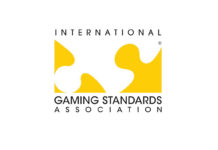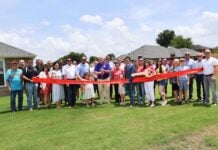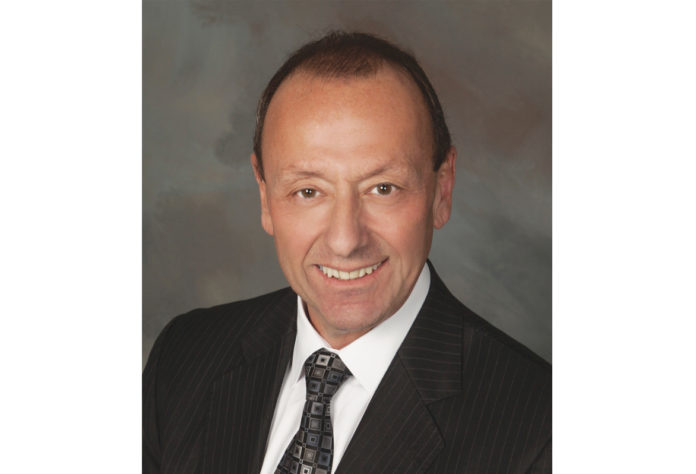by Andrew Klebanow
A recent attempt by a race track operator in Oregon to introduce historic horse racing machines (HHRs) at a new, purpose-built facility in the city of Grants Pass and a subsequent opinion issued by the State of Oregon’s Department of Justice has brought to light an issue that should be of concern to tribes operating casinos in states that offer pari-mutuel wagering. A new generation of HHRs, whose game math is based on a database of past horse races, provides electronic gaming that is nearly identical to Class III slot machines. In other markets where these new generation HHRs have been introduced, they have demonstrated themselves to be worthy competitors to Class III machines, cannibalizing gaming revenues from full-service casino-hotels by offering near identical gaming experiences, often at more convenient locations closer to centers of population.
The State of Oregon has long offered a variety of wagering including a state lottery, video lottery terminals (VLTs), poker rooms, full-service casino gaming at ten casinos operated by Oregon Indian tribes, and pari-mutuel wagering at horse tracks and off-track betting facilities. HHRs were originally introduced into the state at Portland Meadows Racetrack. The facility, located near Interstate 5 on the north side of Portland, closed in 2019 and was subsequently demolished.
The HHRs at Portland Meadows were comprised of an earlier generation of electronic gaming machines and did not offer the same gaming experience as Oregon VLTs or Class III machines found in tribal casinos. These HHRs had a limited library of game titles and operated on fairly pedestrian cabinets. The lackluster facility in which the gaming devices were housed further contributed to their weak performance. In fact, thousands of Oregonians drove past Portland Meadows every day to visit a nearby tribal casino. As such, HHRs were not deemed competitive to VLTs and gaming devices offered at tribal casinos, and were largely ignored by lottery officials and other regulators.
In the past four years, HHRs have undergone dramatic improvements in design, technology, and marketing appeal. Ainsworth Game Technology Inc. developed a new central determinant system that employs the game math found in HHRs and adapted this new system to work on the company’s newest game cabinets and game titles. Nine hundred of these new HHRs were first deployed at Derby City Gaming in Louisville, KY in September of 2018, successfully encroaching on gaming revenue from Caesars Southern Indiana, located 23 miles from Louisville. In fact, Caesars Southern Indiana’s net slot revenue declined by 12 percent during the twelve month period following Derby City’s opening.
Ainsworth entered into licensing agreements with other gaming machine manufacturers, whereby these companies were able to modify their newest game cabinets and most popular game titles to work on Ainsworth’s HHR system. Exacta Systems, another provider of HHR systems and electronic gaming devices predicated on HHR math also entered into licensing agreements with major slot machine manufacturers so that their machines can connect to Exacta’s HHR system.
In addition to Kentucky, the newest generation of HHR machines can now be found in casinos in Wyoming and Virginia and will soon be installed at sixteen pari-mutuel facilities in New Hampshire. Where they have been deployed, these new HHR machines’ revenue performance has been excellent, and they compete successfully with RNG-based gaming devices found in adjacent jurisdictions.
To players, these new generation of HHRs appear nearly identical to Class III machines. The only difference, aside from the HHR logo on the machine, is the appearance of digital facsimiles of horses racing across the top of the game cabinet as the reels spin in front of the player’s eyes.
The Oregon Department of Justice Opinion
In Oregon, horse racing is regulated by the Oregon Racing Commission. Faced with a recent outcry of protest from tribal casinos and the Oregon Lottery, which operates VLTs across the state, the Oregon Racing Commission asked the Oregon Department of Justice (ODOJ) for an opinion on whether the track operator could introduce 225 HHRs at a new facility at Grants Pass Downs.
On February 11, 2022, the ODOJ issued its opinion, stating that HHRs violate two provisions of the Oregon Constitution. The ODOJ determined that the HHRs are games of chance that do not require any degree of skill and that the 225 HHRs represent a private casino. It also stated that HHRs qualify as a lottery in that they offer a prize, their outcome is determined by chance, and require consideration (money) to play. The Oregon Racing Commission reluctantly accepted the ODOJ opinion, but members suggested that a final decision may ultimately be decided in court.
The 2021 Florida Compact
In 2021, the Seminole Tribe of Florida entered into a new compact with the State of Florida. The compact allowed the tribe to introduce a greater variety of house-banked table games along with sports betting. It also greatly diminished the threat of the state’s thirty pari-mutuel operators adding the most modern forms of HHRs. The compact includes the following language that specifically addresses the design and appearance of HHRs:
- After each wager is placed, the Historic Racing Machine must display a video of at least the final eight (8) seconds of the horse or greyhound race before any prize is awarded or indicated on the Historic Racing Machine.
- The display of the video of the horse or greyhound race must occupy at least seventy percent (70%) of the Historic Racing Machine’s video screen and no Historic Racing Machine may contain or be linked to more than one video display.
- No casino game graphics, themes or titles, including but not limited to depictions of slot machine-style symbols, cards, dice, craps, roulette, lotto, or bingo may be used.
- No video or mechanical reel displays are permitted.
What the aforementioned language does is prohibit any HHR manufactured over the past fifteen years, essentially only allowing pari-mutuel operators to offer the first generation of instant racing machines that are now obsolete. Any attempt to create a gaming experience remotely similar to a modern HHR is strictly prohibited.
Clearly, the Seminole Tribe of Florida recognized that modern HHRs offer an electronic gaming experience that is nearly identical to the Class III machines that their casinos offer. To prevent any possible erosion of market share, the tribe insisted on language that all but eliminated their competitors from offering the gaming entertainment experience of modern HHR machines.
Conclusion
The Ainsworth and Exacta HHR systems represent a quantum leap in the quality of electronic gaming devices that employ pari-mutuel math models. Legislatures in Kentucky, Virginia, and New Hampshire recognized that the introduction of these machines represented an expansion of electronic wagering in their respective states, and authorized them with that knowledge. Likewise, state legislators and regulators in other jurisdictions must realize that permitting HHRs at pari-mutuel facilities is an expansion of electronic gaming, and not some form of horse racing, as it is often alluded to by pari-mutuel operators. If they desire an expansion of gaming, then HHRs can provide an excellent form of gaming entertainment.
Tribes must also be cognizant that HHRs are electronic gaming devices that provide near identical gaming experiences as their Class III and Class II machines. Pari-mutuel facilities that receive authorization to offer them, whether racetracks or off-track betting parlors, represent new competition, armed with gaming products that are as good as any slot machine available at a tribal casino. If located closer to population centers or within the same markets served by tribal casinos, they will have negative impacts on gaming revenues and as such, pose a threat to their gaming enterprises. Tribes would be wise to pay attention to any attempt by pari-mutuel operators to alter regulations that allow for the introduction of HHRs at their facilities.
Andrew Klebanow is Co-Founder and Senior Advisor at C3 Gaming (Casino Consultants Consortium), a diverse group of independent gaming consultants. He can be reached by calling (702) 845-7346 or email andrew@c3gaminggroup.com.
















































